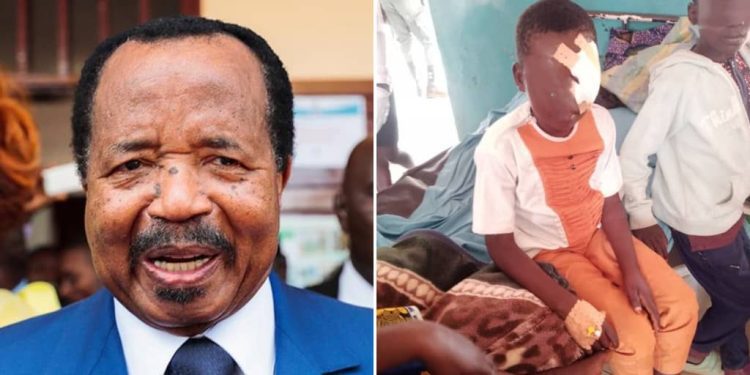President Paul Biya has condemned the bomb attack that disrupted Youth Day celebrations and killed a student and injured over 50 in Nkambe, North West Region, on Sunday, February 11.
In a message shared on his social media handles on Monday evening, President Paul Biya described the attack as a heinous and cowardly act.
“A heinous act was committed by cowardly criminals in Nkambe, North-West Region, while young Cameroonians were celebrating the day dedicated to them,” he said.
“I strongly condemn this terrorist attack. I convey my sincere condolences to the family of Cherish Limnuyu, a 15-year-old student of GHS Nwangri. I equally wish a speedy recovery to the injured,” he added.
The locally made bomb exploded on Sunday afternoon at a crowded spot where women were selling foodstuffs to schoolchildren. This was shortly after the match pass had taken place at the Nkambe grandstand, with thousands of people in attendance.
The attack inflicted injuries on more than 50 people, mostly women and children, with several of them reported to be in critical condition.
The attack was claimed by separatists, who have been clamouring for an independent state in the English-speaking regions of Cameroon.
The Governor of the North West Region, Adolphe Lele L’Afrique, earlier announced that three suspects had been arrested in connection with the explosion, but did not reveal any details about them.
The Wimbum Cultural and Development Association (WICUDA) launched a public appeal for financial and material aid, including blood donation, to the victims.
Some of them suffered body amputations as a result of the deadly blast.
The attack was one of the most significant witnessed in Nkambe since the armed conflict started in the English-speaking regions of Cameroon.
President Biya is the latest official to condemn the attack, as condemnation continues to pour in from various quarters.
Hours before the unfortunate incident, he called on Cameroonian youths, in his Youth Day message, to shun vices like violence, which is now a daily occurrence in the North West and South West Regions.
Biya’s government has been repeatedly criticised by the opposition and civil society for failing to properly handle what is now known as the Anglophone Crisis.
The armed conflict started in 2016 as a collective protest by Anglophone Cameroonians against marginalisation, a lack of economic opportunities, and underdevelopment.



